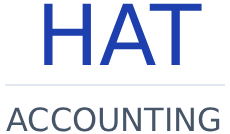Consulting firms, whether in management, IT, or other industries, face unique challenges when it comes to bookkeeping. With fluctuating client projects, varying invoicing schedules, and complex expense tracking, maintaining clean and efficient books is crucial. In this article, we’ll explore some of the best practices consulting firms can adopt to ensure their financials stay on track and continue to support business growth.
1. Keep Detailed Records of All Client Work
Consulting firms usually work with multiple clients on various projects at once. Keeping detailed records of hours worked, services provided, and expenses incurred for each client ensures you can accurately invoice them and track project profitability. Use project management software that integrates with your accounting system to automate this process.
2. Separate Personal and Business Finances
It’s crucial for consulting firms to maintain a clear distinction between personal and business finances. This reduces the risk of errors and simplifies your bookkeeping. Open a separate business bank account and use business credit cards exclusively for professional expenses to avoid mixing funds.
3. Automate Invoicing and Payment Collection
One of the key challenges for consultants is managing timely invoicing and payment collections. Automate this process through accounting software like QuickBooks or Xero to generate and send invoices as soon as a project milestone is reached or a service is rendered. Setting up automatic reminders for overdue payments can help maintain cash flow and ensure that you’re paid on time.
4. Track Project Expenses and Overhead
Consultants often face fluctuating expenses, from office supplies to travel costs. Tracking these expenses is important for accurate project costings and profitability analysis. Categorize these costs appropriately—whether they’re direct expenses for a project or general operating costs—so you can report your financials with clarity.
5. Set Aside Money for Taxes
Unlike salaried employees, consultants typically need to manage their own taxes, which can fluctuate depending on the scope of their work and the income earned. Set aside a percentage of your monthly earnings in a tax account to ensure you’re ready when tax season rolls around.
Conclusion
By following these best practices, consulting firms can stay on top of their finances, avoid costly mistakes, and ensure that their business is set up for long-term success. Proper bookkeeping and financial management can free up your time, allowing you to focus on serving clients and growing your practice.





